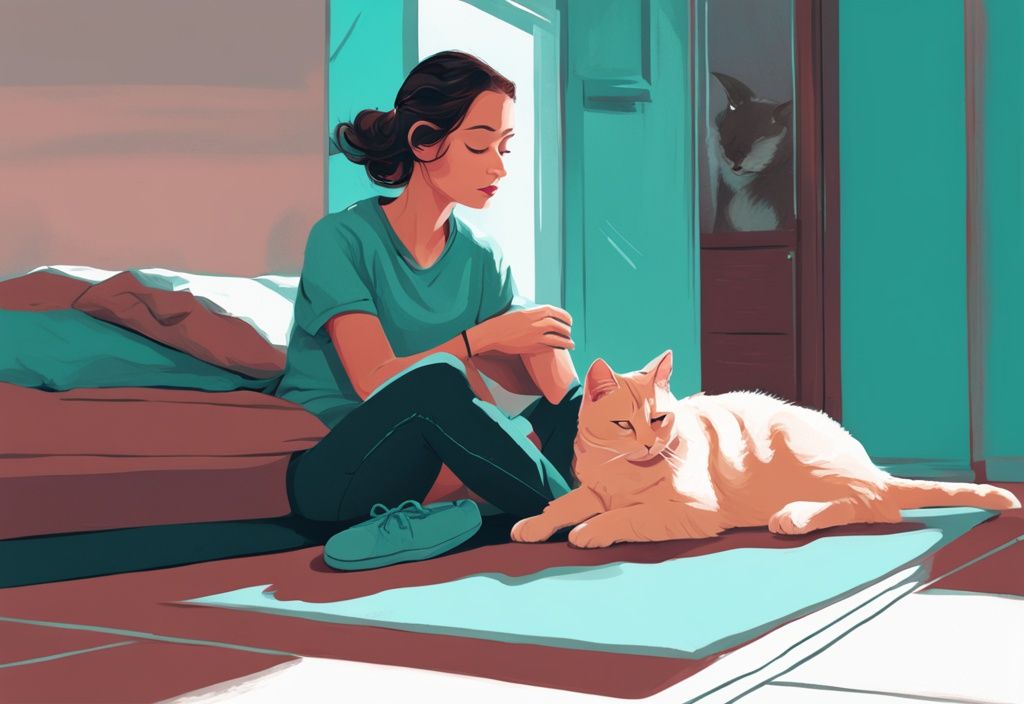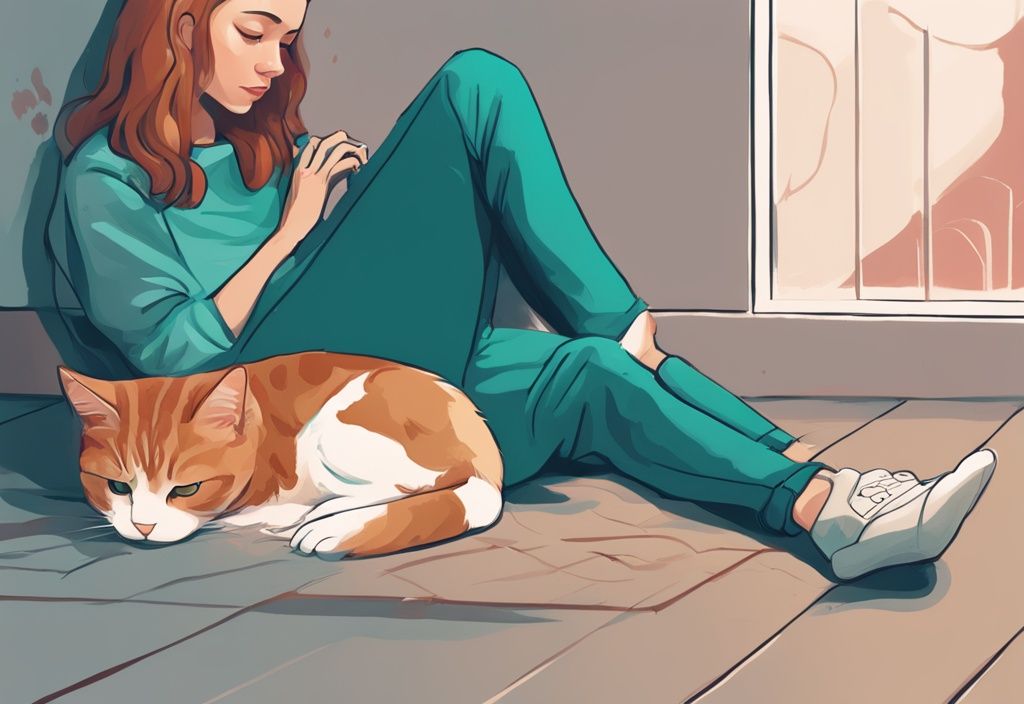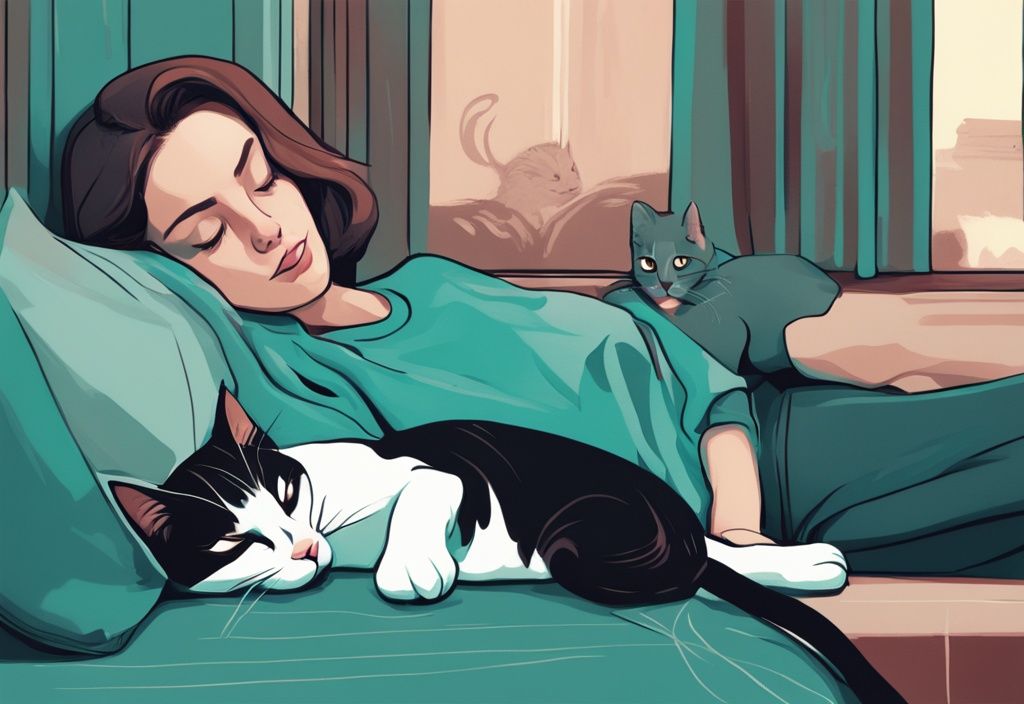Ever found yourself asking, “Why doesn’t my cat purr?” You’re not alone! As a fellow pet lover, I know how puzzling it can be when Whiskers, my rescue cat, goes silent. Purring is often linked to a cat’s happiness and health, so it’s natural to worry when it’s absent.
In this article, we’ll explore the various reasons why your feline friend might not be purring. From anatomical quirks to environmental influences, we’ll delve into the mystery together.
So, whether it’s a sign of a deeper issue or just a unique personality trait, we’ll help you understand your cat better. After all, every purr, or lack thereof, tells a tale. Let’s ensure your cat’s well-being and happiness together!
Understanding Cat Purring: An Overview
Cats have this magical ability to purr, a delightful sound that comes from the gentle vibration of their vocal cords. Picture a tiny engine humming along, powered by the complex teamwork of the brain, larynx, and diaphragm. Most domestic cats purr at a frequency between 25 to 150 vibrations per second. It’s like having a little symphony of contentment and relaxation right in your lap, and who wouldn’t love that soothing soundtrack?
But here’s a twist—purring isn’t just a sign of feline happiness. It’s a clever trick some cats learn to get more cuddles or attention from us, their human pals. Ever noticed your cat purring when they’re feeling under the weather or stressed? It’s like their secret superpower to release endorphins, helping them feel a bit better.
Now, if you’re scratching your head thinking, “Why doesn’t my cat purr?”—let’s dive into the mystery. There could be a mix of reasons, from anatomical quirks to medical issues, or even their mood and surroundings. Some cats just march to the beat of their own drum, and that’s okay. Maybe they have different ways of showing love or feeling comfy. Remember, each cat is a unique little furball with their own quirks and preferences. Understanding their purring habits means embracing their individuality.
Common Reasons Why Your Cat May Not Purr
Ever wondered, “why doesn’t my cat purr?” You’re not alone! Cats are fascinating creatures, and their purring—or lack thereof—can be a mystery. Let’s dive into some possible reasons your feline friend might be keeping quiet.
Physical and Anatomical Factors
Cats, much like snowflakes, are all unique! Sometimes, it’s their anatomy that decides whether they purr or not. Some kitties might have quirky larynx structures that make purring tricky or even impossible. This could be due to genetics or nerve issues. While our domestic fluffballs are famous for their soothing purrs, big cats like lions have different larynx designs that prevent them from joining the purring club. So, if you’re scratching your head and asking, “why doesn’t my cat purr,” these physical quirks might be the answer.

Medical Conditions That Can Affect Purring
Health hiccups can put a damper on your cat’s purring prowess. Problems with the mouth, pharynx, larynx, or trachea can mess with the vocal cords, altering that delightful purr. Conditions like laryngeal disease or vocal cord injuries can silence a cat’s purr altogether. Inflammation, laryngeal paralysis, or tumors might also be culprits. If your cat suddenly stops purring, it’s time to play detective and visit the vet to rule out any sneaky health issues.
Behavioral and Environmental Factors
A cat’s mood and surroundings can play a big role in its purring behavior. Stress, fear, or a new home can make a cat clam up. Changes in their environment or routine might stress them out, reducing their desire to purr. Feral cats or those with feral moms might not purr as much, staying quiet to dodge predators. If you’re pondering, “why doesn’t my cat purr,” think about whether stress or anxiety could be the reason.
Individual Cat Personality and Preferences
Cats, like people, have their own personalities and preferences. Some cats might skip the purring and opt for other ways to communicate, like body language or different sounds. Personality traits can be a big factor; some cats are naturally more reserved. If your cat’s not a purrer, it might be expressing itself through other means, like meowing or using body language. Understanding your cat’s unique personality can give you a clue as to why it might not be purring.
When Should You Worry About Your Cat Not Purring?
Ever wondered why your cat suddenly stops purring? It can be a bit puzzling, right? Let’s dive into some reasons and what you might want to look out for.
Recognizing Signs of Stress or Illness
Understanding why your cat doesn’t purr can be crucial, especially if there’s a sudden change in their behavior. Imagine my Whiskers, usually a purring machine, suddenly going silent—it’s like a quiet alarm bell ringing! A cat that stops purring might be experiencing stress, injury, or illness. Cats often become quieter when unwell, instinctively avoiding attention from potential threats. Additionally, changes in behavior, whether due to positive or negative experiences, can lead to a cat choosing silence over purring. If your cat prefers solitude, it might be a sign that something is amiss. Have you noticed your furry friend hiding more often? That might be their way of saying, “I need a little help here.”
The Importance of Veterinary Consultation
If your cat, known for its purring, suddenly stops, it’s essential to consult a veterinarian. This change, coupled with other behavioral shifts, could indicate an underlying health issue. Regular vet check-ups are vital for maintaining your cat’s health and well-being. A professional evaluation can uncover any medical reasons behind the change in purring behavior, ensuring your feline friend receives the care they need. Think of it like a wellness check-up for your cat—just like how I take Max and Whiskers to the vet for their regular visits. It’s all about keeping them happy and healthy!

How to Encourage Your Cat to Purr
Ever wondered, “Why doesn’t my cat purr?” Well, you’re not alone! Let’s dive into what might be going on and how you can create a purr-fectly cozy environment for your feline friend.
Creating a Comfortable and Purr-Inducing Environment
Understanding why your cat might not be purring often leads back to their environment. Cats, much like my cuddly rescue cat Whiskers, thrive in spaces where they feel secure and at ease. To encourage your cat to purr, focus on creating a stress-free atmosphere. Imagine a quiet, cozy nook where your cat can retreat and relax—sounds dreamy, right? Ensure that their surroundings are free from loud noises and sudden disruptions, which can cause anxiety. Offering a variety of soft bedding options and maintaining a consistent routine can help your cat feel more at home, promoting relaxation and the likelihood of purring. It’s like setting up a little spa day for your kitty!
Building a Strong Bond with Your Cat
Another reason your cat might not be purring could be the lack of a strong bond between you and your feline friend. Cats often purr when they feel loved and secure, so building a strong relationship is key. Spend quality time with your cat through regular interaction and play. Picture this: gentle petting and cuddling can encourage purring, as these actions often signal affection and safety to your cat. By being attentive to your cat’s needs and preferences, you can foster a deeper connection, making them more comfortable and inclined to express their contentment through purring. It’s all about creating those special moments that make your cat feel cherished.
FAQs About Cats and Purring
Ever wondered why your feline friend might not be the purring machine you expected? Let’s dive into some common questions about why cats purr—or sometimes don’t!
Can all cats purr?
Here’s a fun fact: not every cat is a purring maestro! Some cats might be physically unable to purr due to unique anatomical quirks in their larynx. Imagine that! Plus, just like humans, some cats are more naturally inclined to purr than others. It’s all part of their charming individuality.
Why has my cat suddenly stopped purring?
If your cat’s purr has gone MIA, it might be waving a little red flag. Stress, injury, or illness could be the culprits. It’s a good idea to check in with your vet to ensure everything’s A-OK. Sometimes, even a simple change in their environment or routine can throw them off their purring game.

Is it normal for some cats to never purr?
Absolutely, some cats just don’t purr, and that’s perfectly normal! It might be due to their unique personality or those fascinating anatomical differences. Cats who didn’t get a chance to learn from their mom, like my Whiskers who was a bit of a late bloomer, might miss out on this skill too.
How can I tell if my cat is purring quietly?
Some cats are stealthy purrers, almost like little purring ninjas! If you suspect your kitty is one of them, try feeling for gentle vibrations along their body or place a hand softly on their throat. It’s like discovering a secret melody only you can hear.
Conclusion: Understanding Your Cat’s Purring Habits
Ever wondered why doesn’t my cat purr? It’s a question that can lead you down a fascinating path of discovery, much like a treasure hunt in the world of feline mysteries! Let’s dive into the possible reasons, shall we?
First up, we have the anatomical quirks. Just like how my Border Collie, Max, has a unique bark, some cats have larynx variations that make purring a bit of a challenge. Imagine trying to whistle with a mouth full of marshmallows—tricky, right? Similarly, medical conditions can play a sneaky role, affecting the vocal cords and making purring uncomfortable or downright impossible. If you are curious about how medical issues can also affect other pets, you might want to read about why your dog might be scooting its butt on the floor.
But wait, there’s more! Behavioral and environmental factors are like the plot twists in a good novel. Stress, fear, or even a new couch in the living room can throw your kitty’s purring off balance. Remember when Whiskers, my rescue cat, first came home? It took him a while to feel safe enough to purr. Cats are like us; they need time to adjust and feel secure.
Now, let’s not forget the individual personality quirks. Some cats are the strong, silent type, preferring to express themselves through a twitch of the tail or a gentle headbutt. It’s their way of saying, “I’m here, and I love you,” without the purr.
So, how do you ensure your cat is happy and healthy, even if they’re not serenading you with purrs? Regular vet check-ups are a must. They’re like a spa day for your kitty’s health, ensuring everything is in tip-top shape. Plus, it gives you peace of mind, knowing you’re doing everything possible for your furry friend.
In the end, it’s all about recognizing and respecting your cat’s unique personality. Some might purr, some might not, and that’s perfectly okay. After all, isn’t it the quirks and charms that make our pets so lovable? By understanding these nuances, you can better appreciate and respond to your cat’s individual needs and habits. If you’ve ever wondered, “Why does my cat wink at me?”, learning the reasons behind this behavior can deepen your bond with your feline friend. Find out more about this interesting cat behavior and enhance your understanding.
